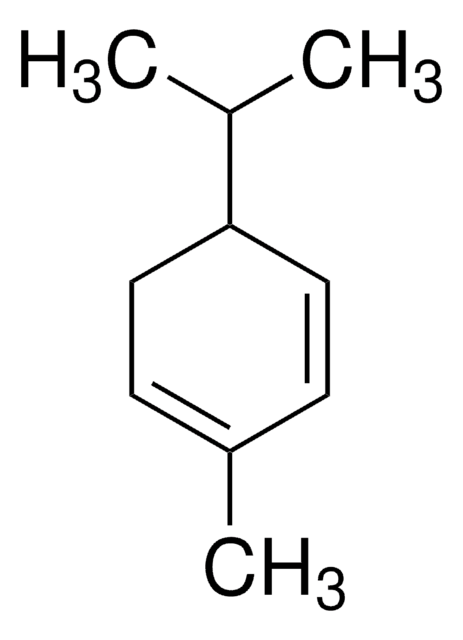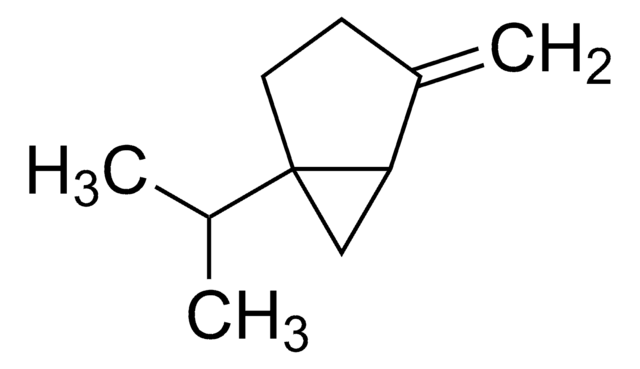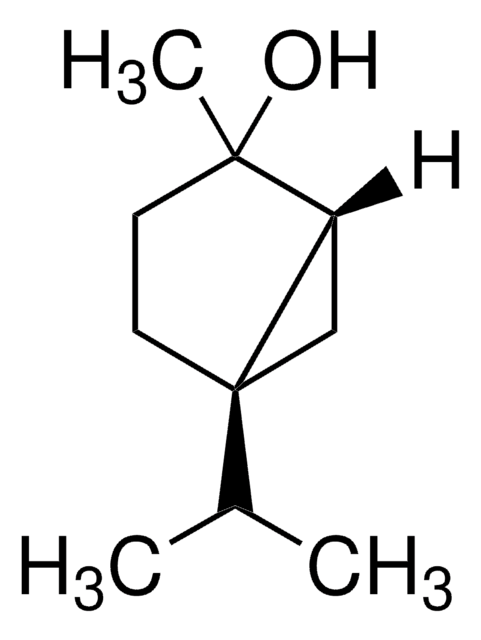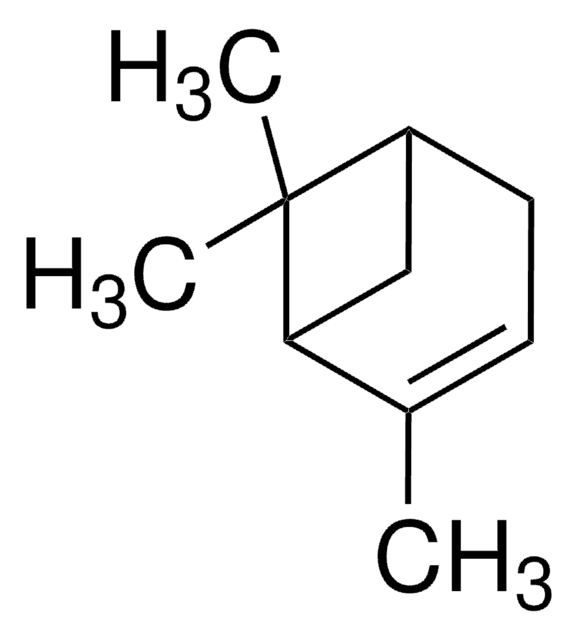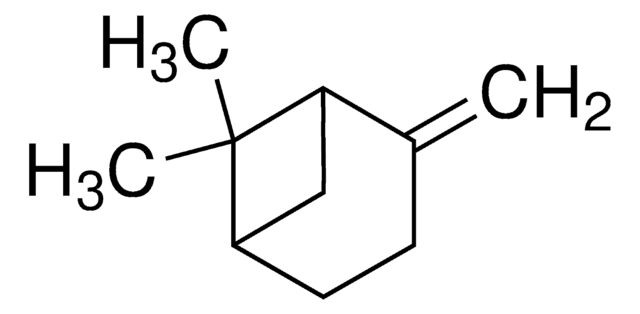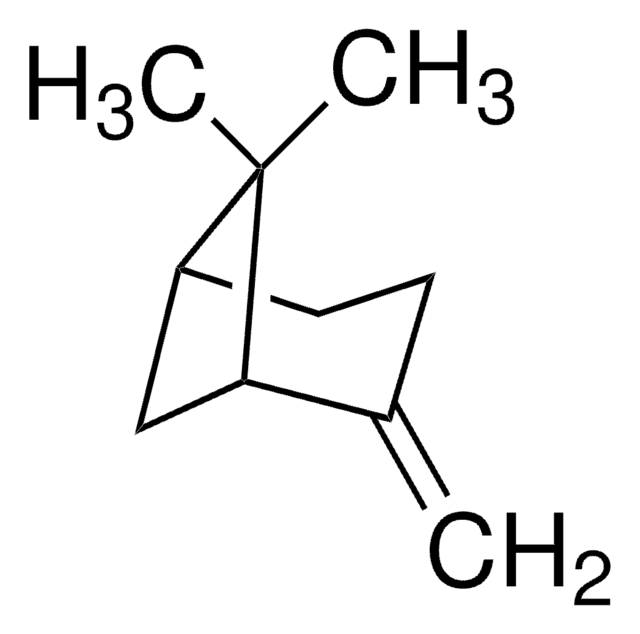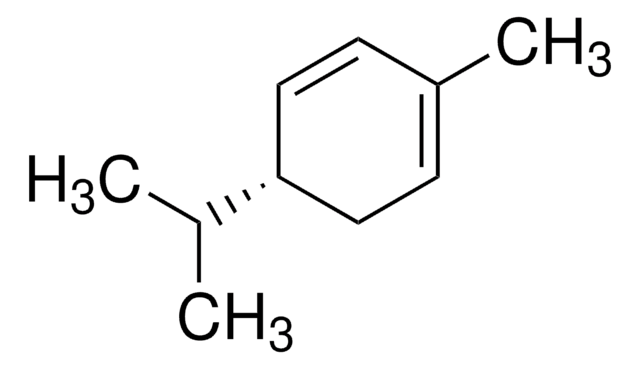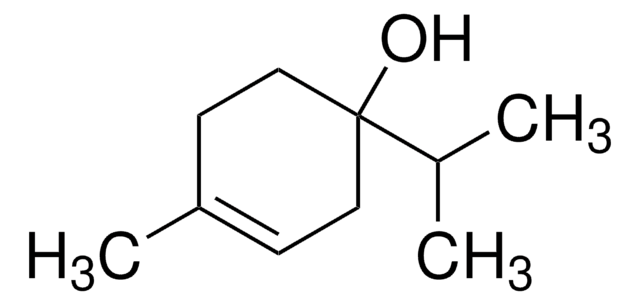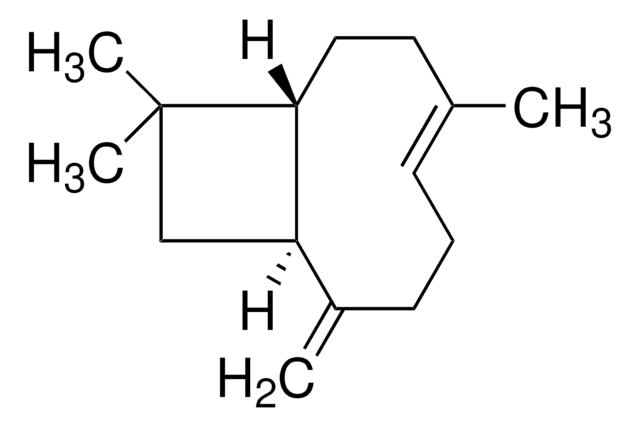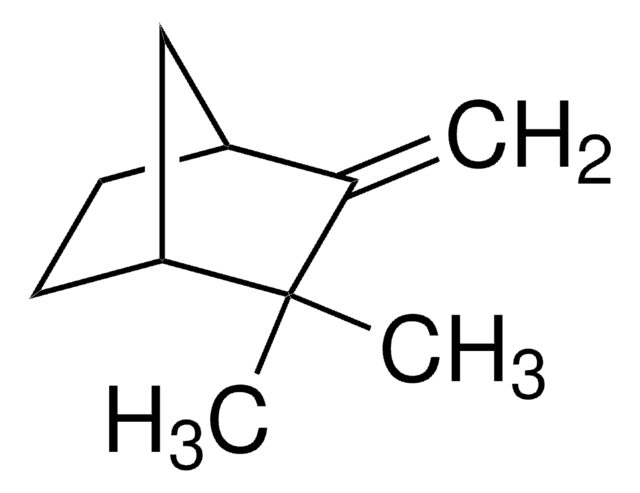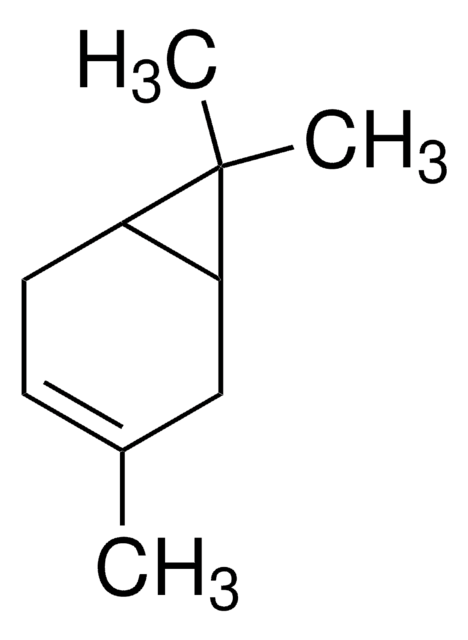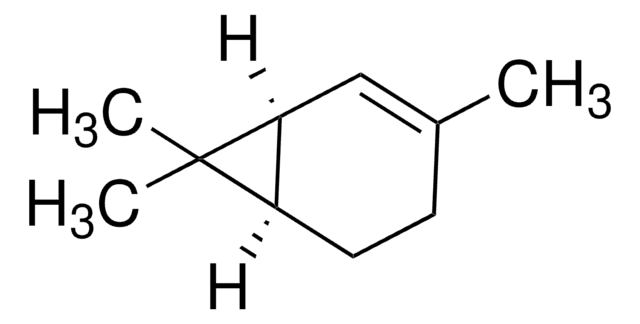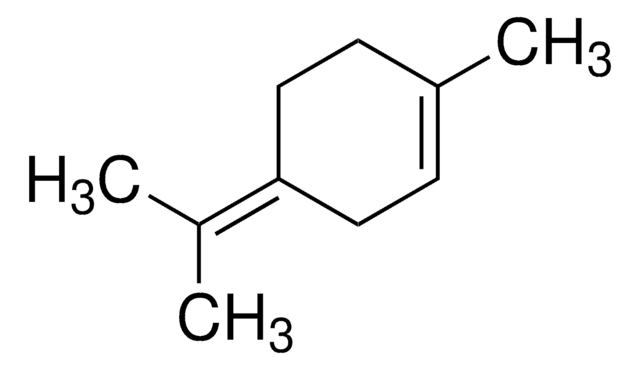W530597
Sabinene
natural, 75%
Synonym(s):
4(10)-thujene, Sabinen, 4-methylidene-1-propan-2-ylbicyclo[3.1.0]hexane
About This Item
Halal
Kosher
natural
Recommended Products
grade
Fragrance grade
Halal
Kosher
natural
Quality Level
Agency
follows IFRA guidelines
reg. compliance
EU Regulation 1223/2009
Assay
75%
greener alternative product characteristics
Less Hazardous Chemical Syntheses
Use of Renewable Feedstocks
Learn more about the Principles of Green Chemistry.
sustainability
Greener Alternative Product
density
0.842 g/mL at 25 °C
application(s)
flavors and fragrances
Documentation
see Safety & Documentation for available documents
food allergen
no known allergens
fragrance allergen
no known allergens
greener alternative category
Organoleptic
woody; citrus; spicy
SMILES string
CC(C)C12CCC(=C)C1C2
InChI
1S/C10H16/c1-7(2)10-5-4-8(3)9(10)6-10/h7,9H,3-6H2,1-2H3
InChI key
NDVASEGYNIMXJL-UHFFFAOYSA-N
Looking for similar products? Visit Product Comparison Guide
General description
Disclaimer
Signal Word
Warning
Hazard Statements
Precautionary Statements
Hazard Classifications
Acute Tox. 4 Oral - Flam. Liq. 3
Storage Class Code
3 - Flammable liquids
WGK
WGK 3
Regulatory Listings
Regulatory Listings are mainly provided for chemical products. Only limited information can be provided here for non-chemical products. No entry means none of the components are listed. It is the user’s obligation to ensure the safe and legal use of the product.
JAN Code
W530597-SAMPLE-K:
W530597-10KG-K:
W530597-25KG-K:
W530597-BULK-K:
W530597-VAR-K:
W530597-1KG-K:
Choose from one of the most recent versions:
Already Own This Product?
Find documentation for the products that you have recently purchased in the Document Library.
Customers Also Viewed
Our team of scientists has experience in all areas of research including Life Science, Material Science, Chemical Synthesis, Chromatography, Analytical and many others.
Contact Technical Service